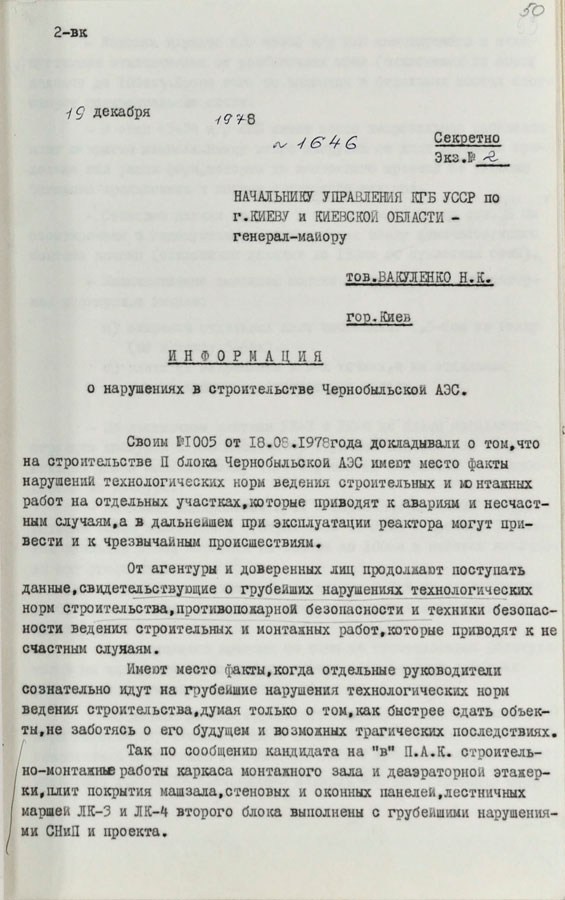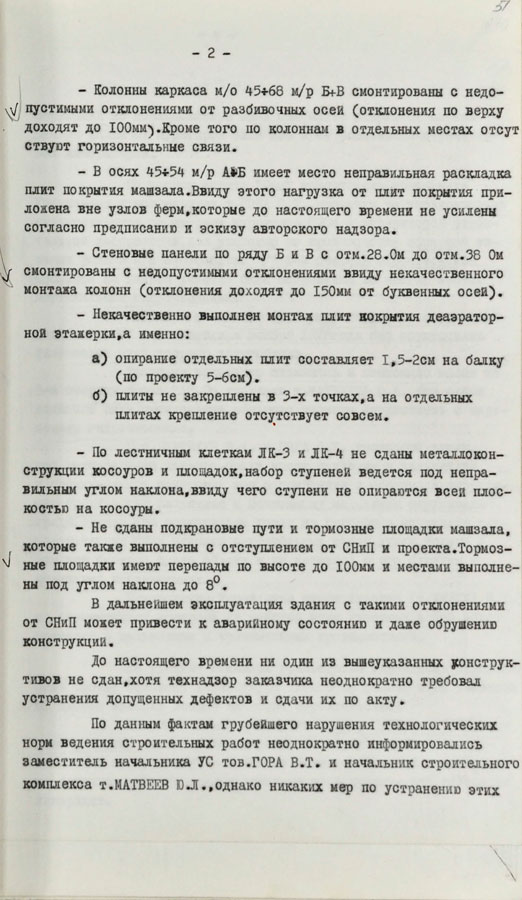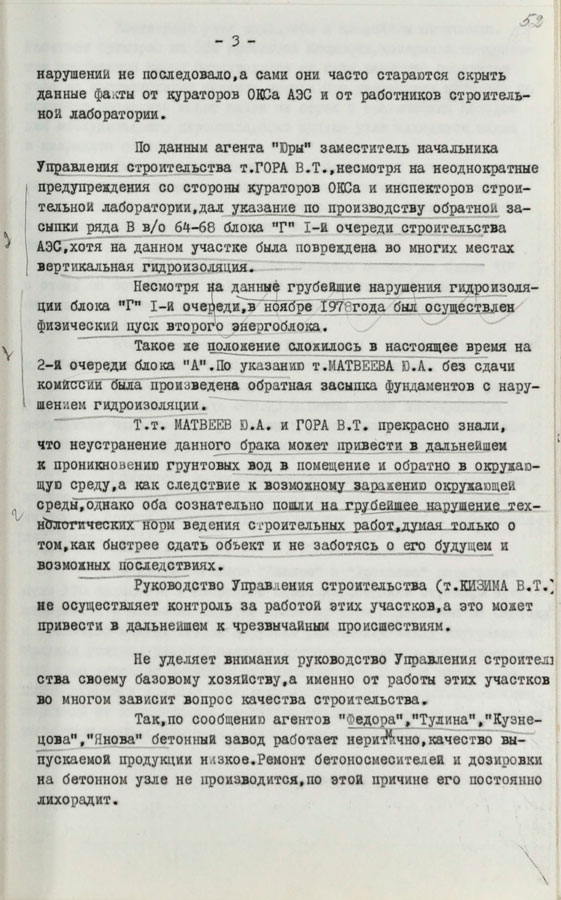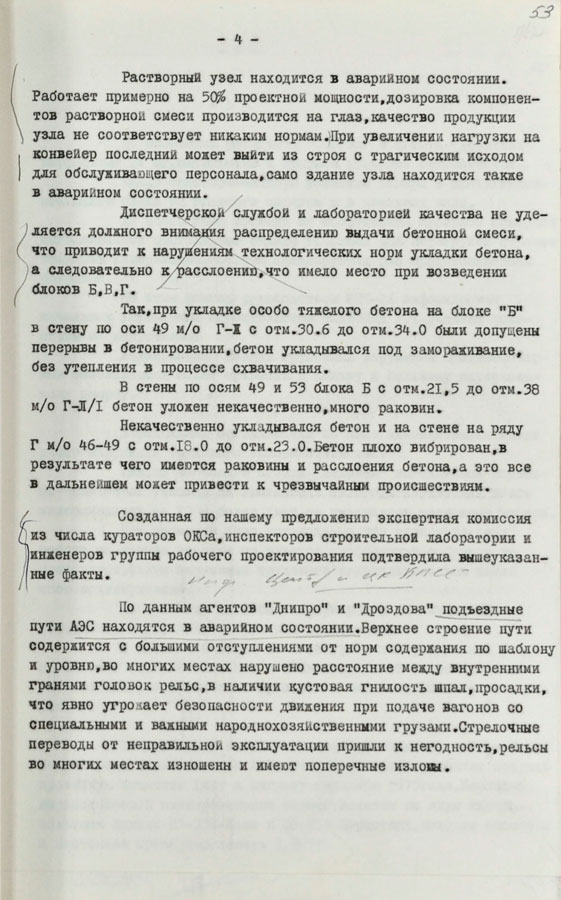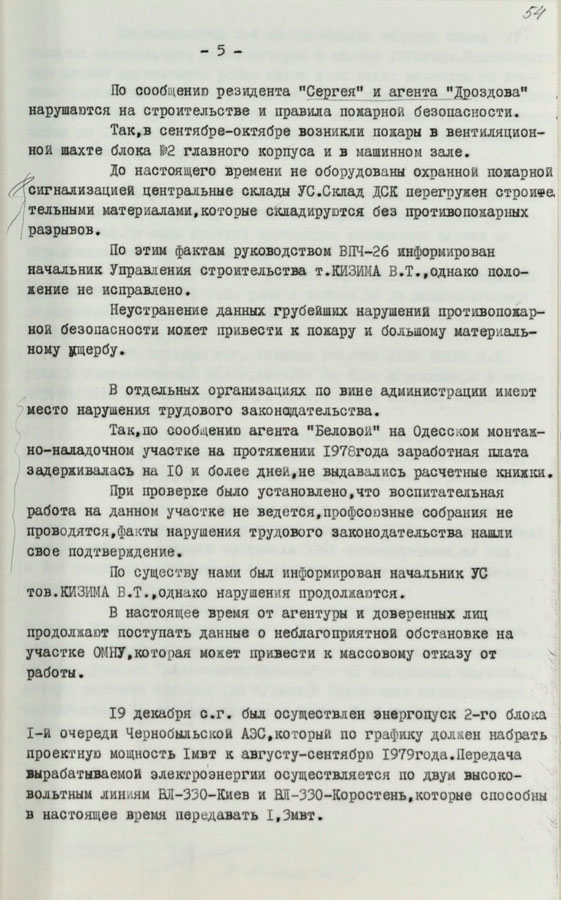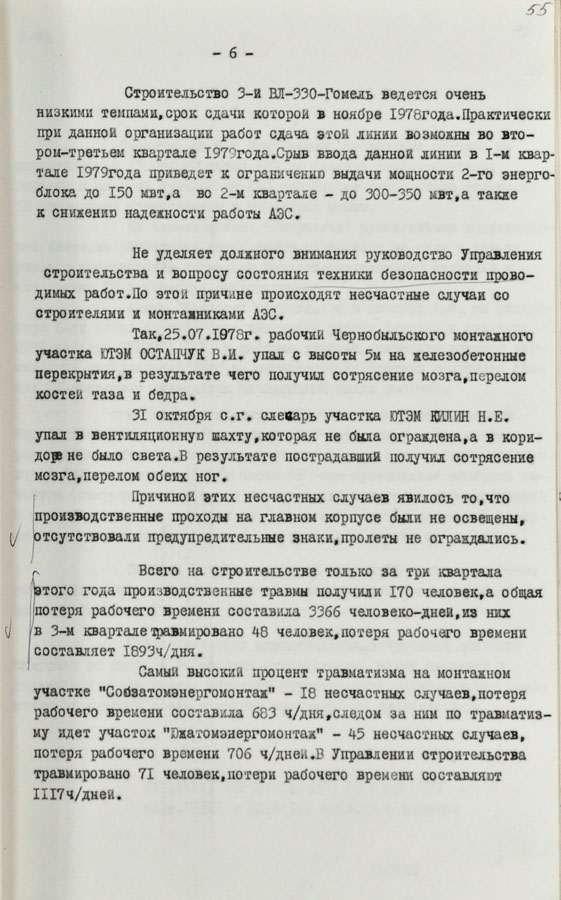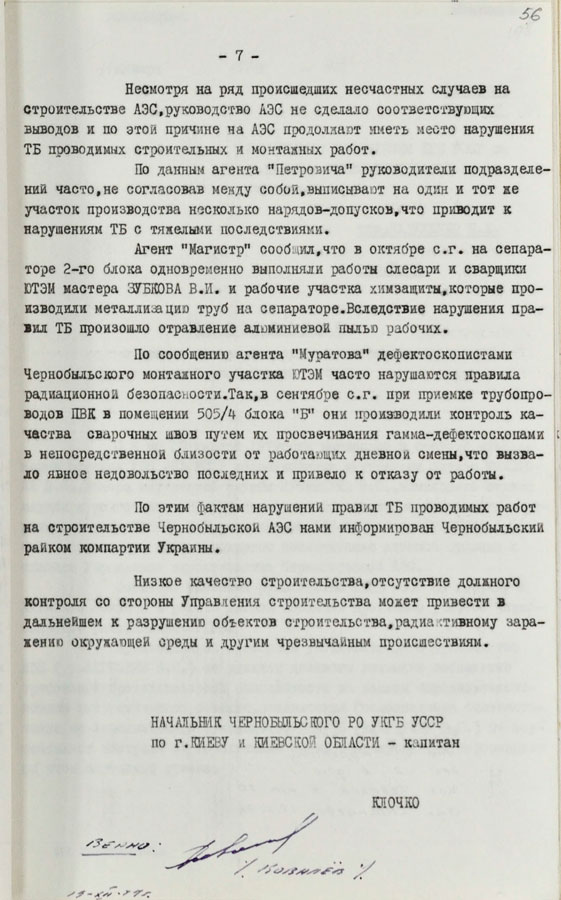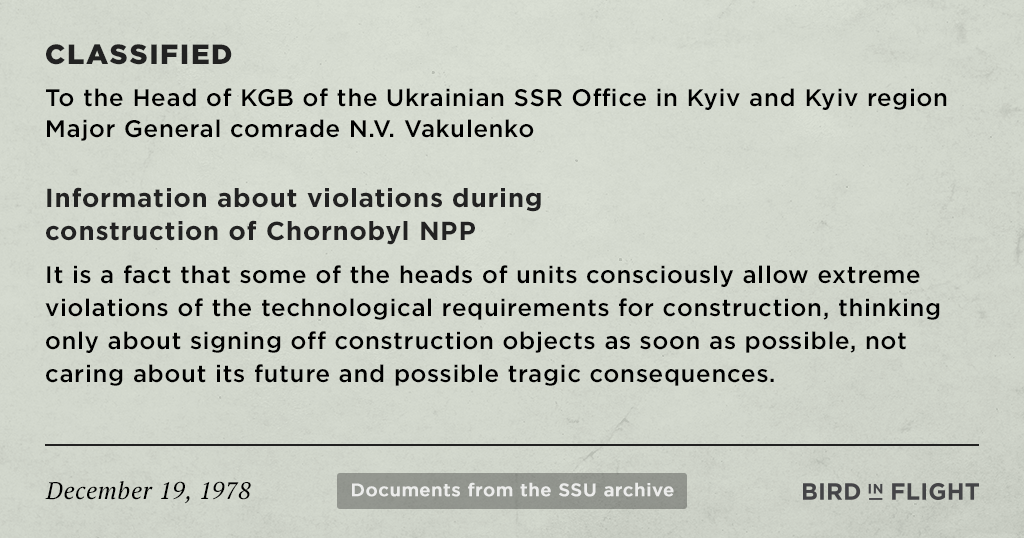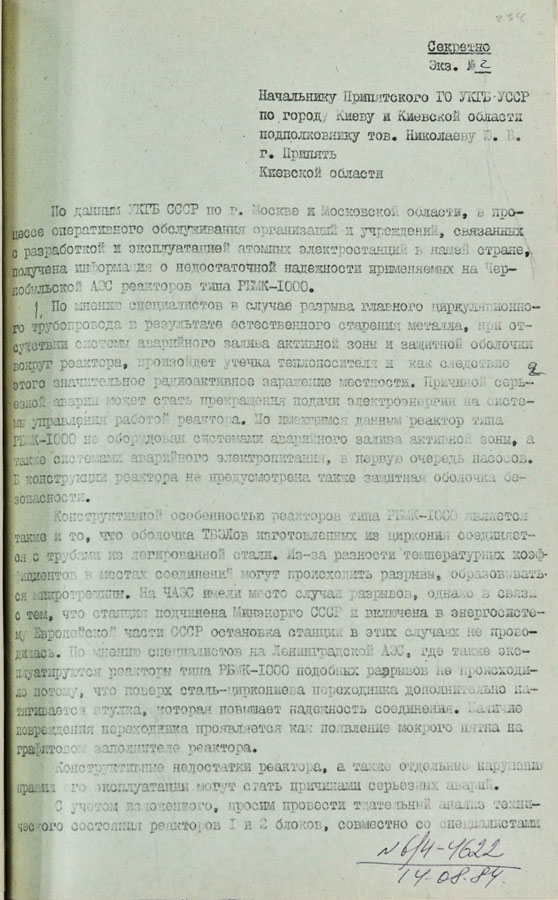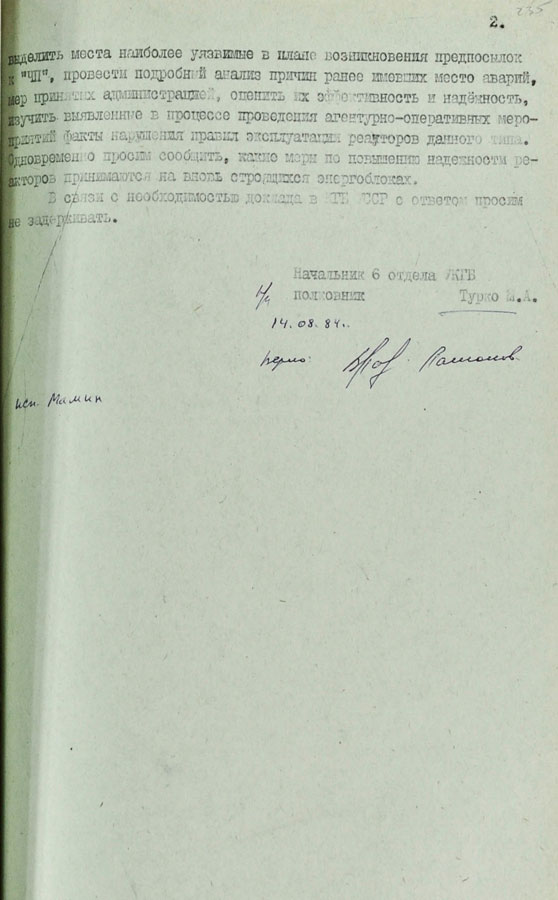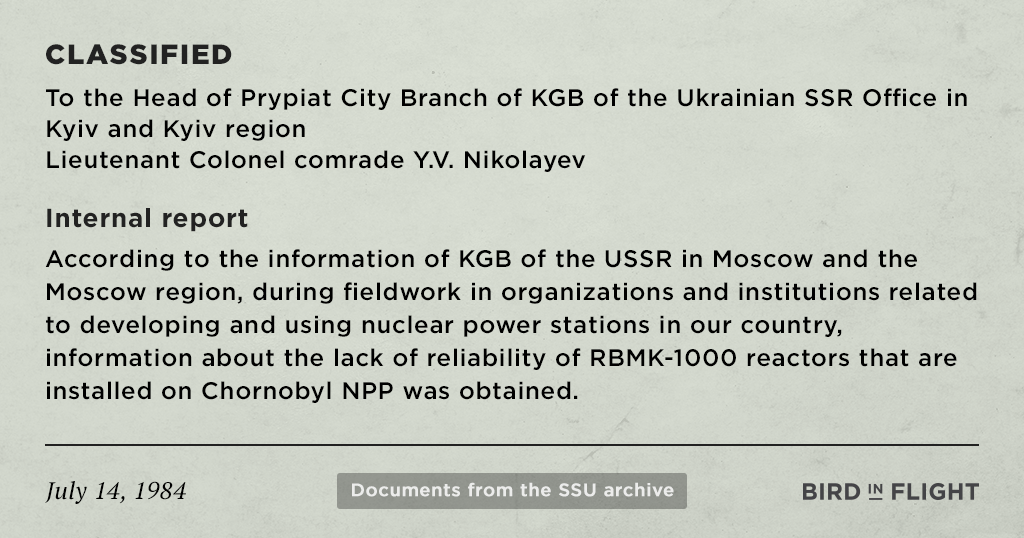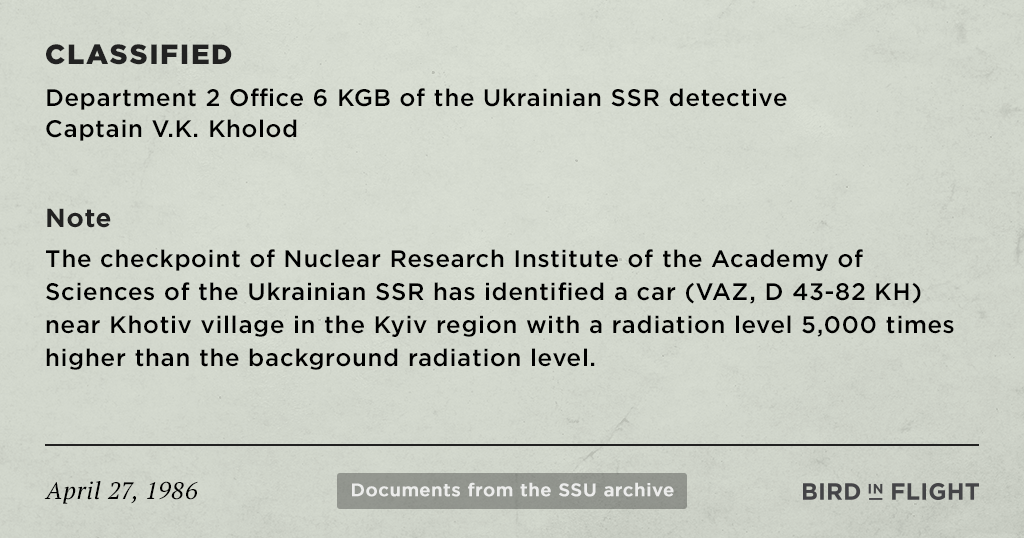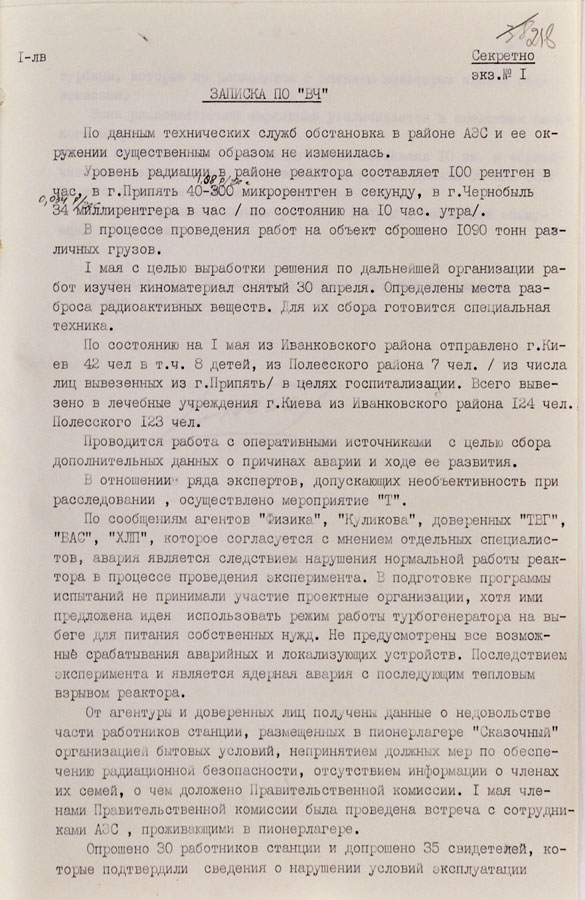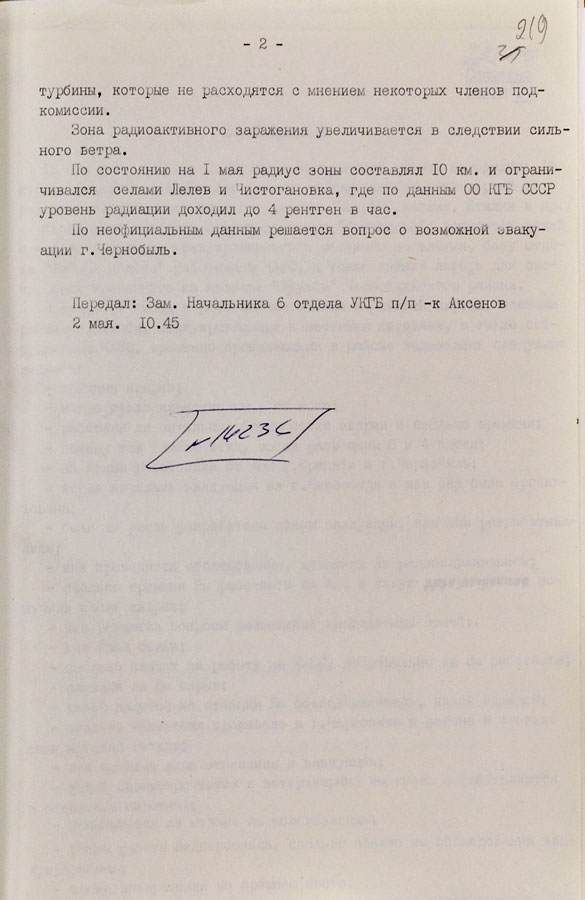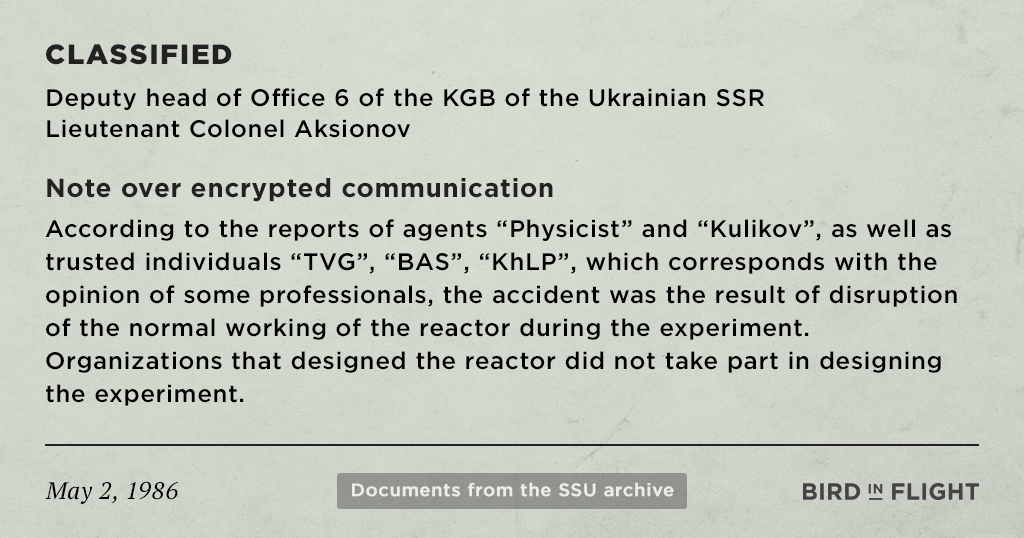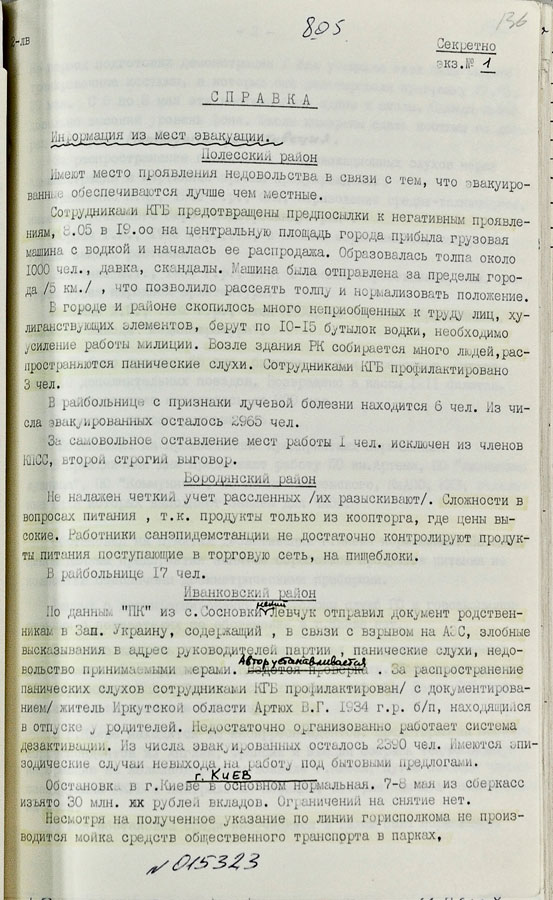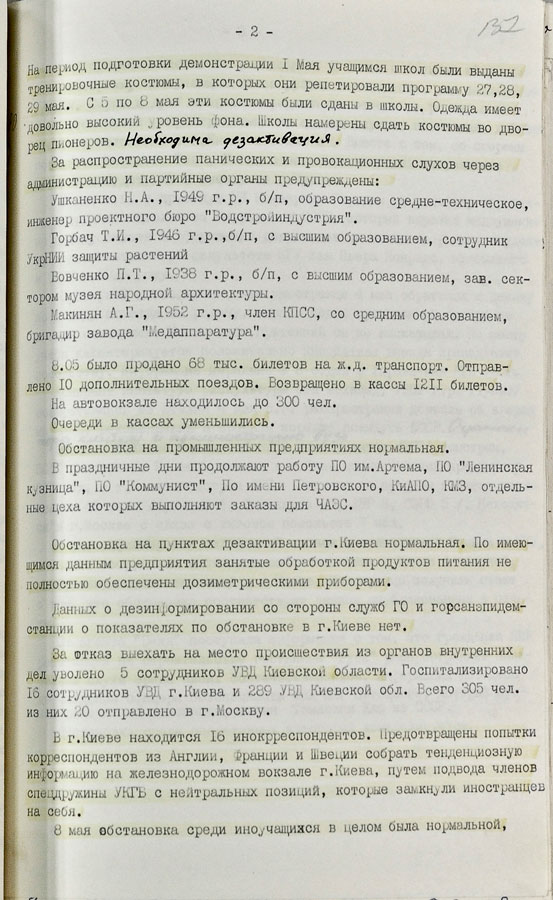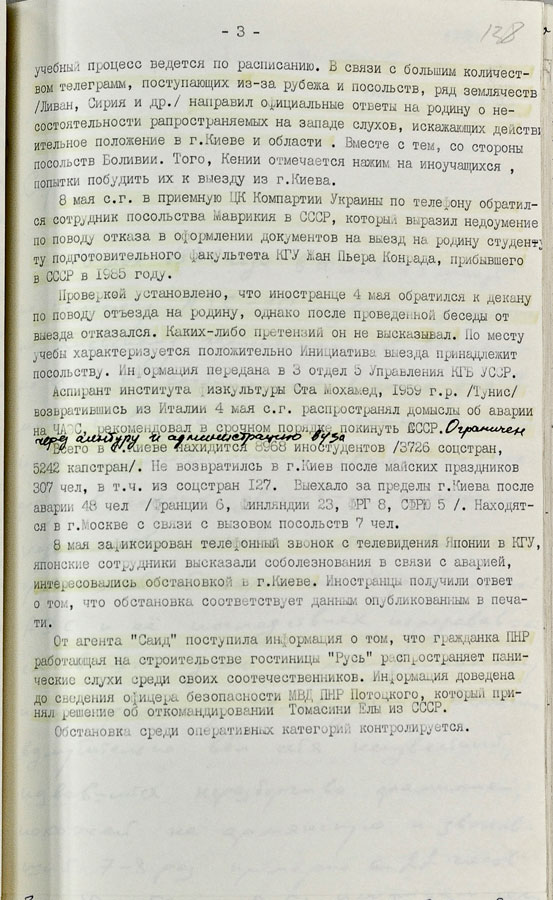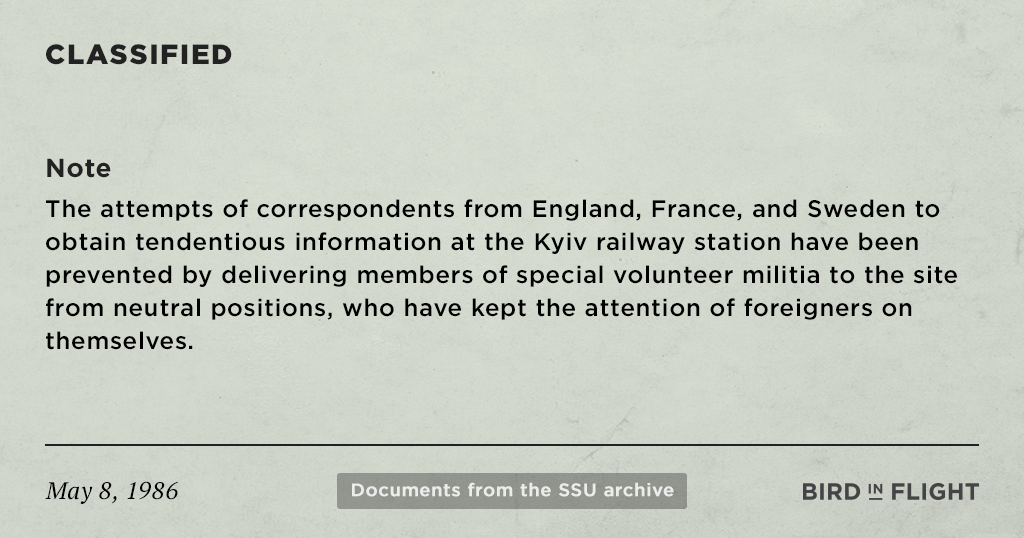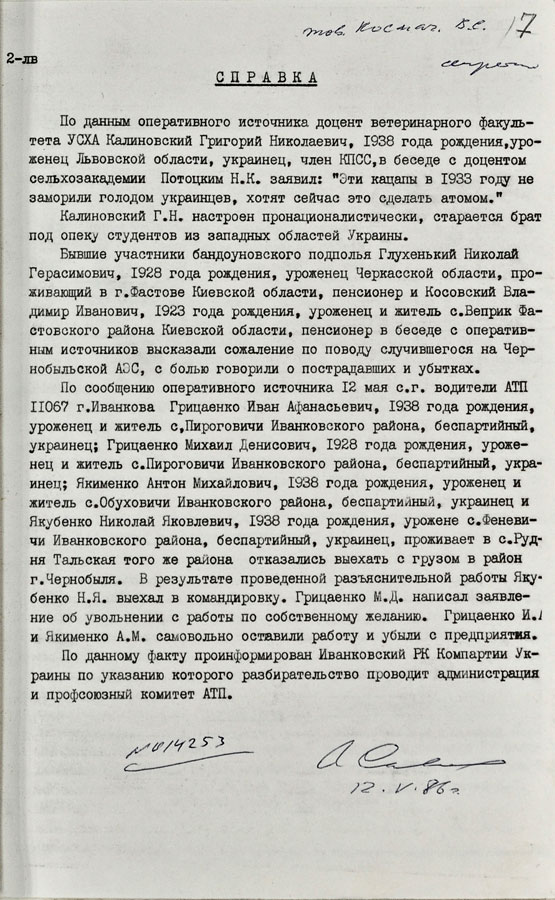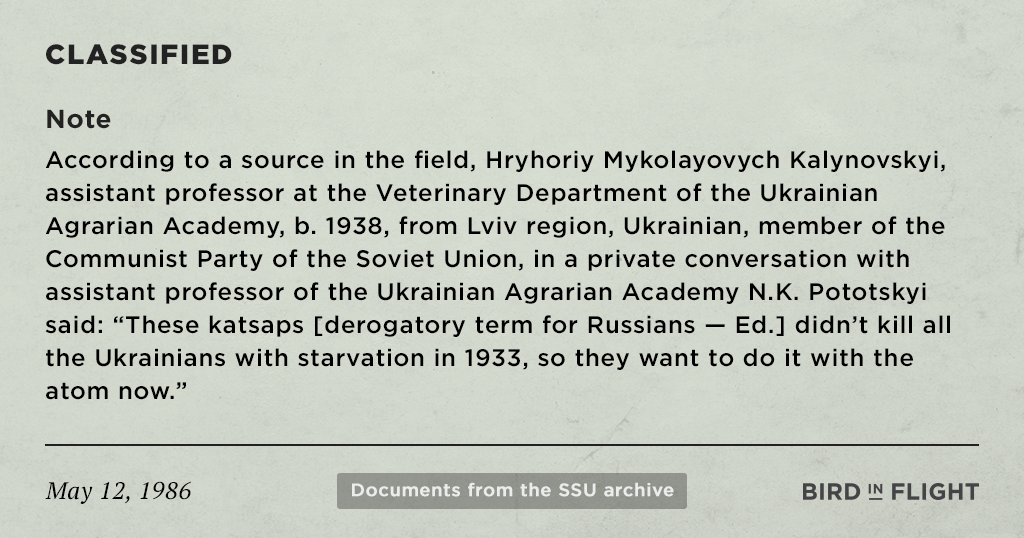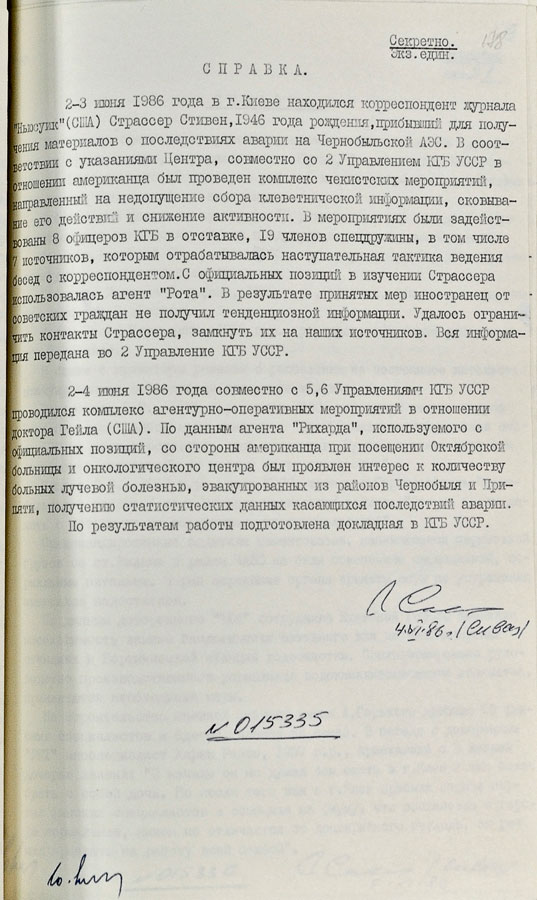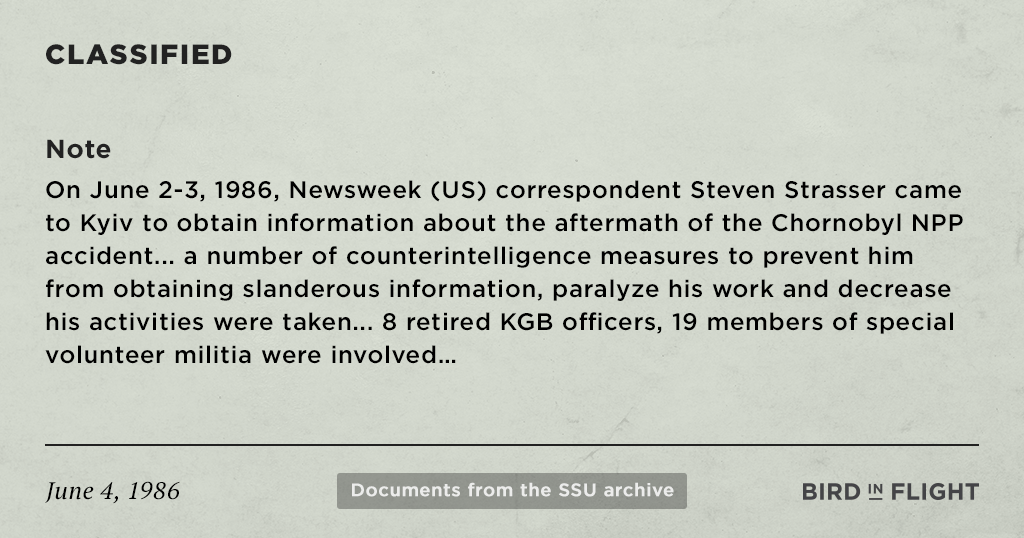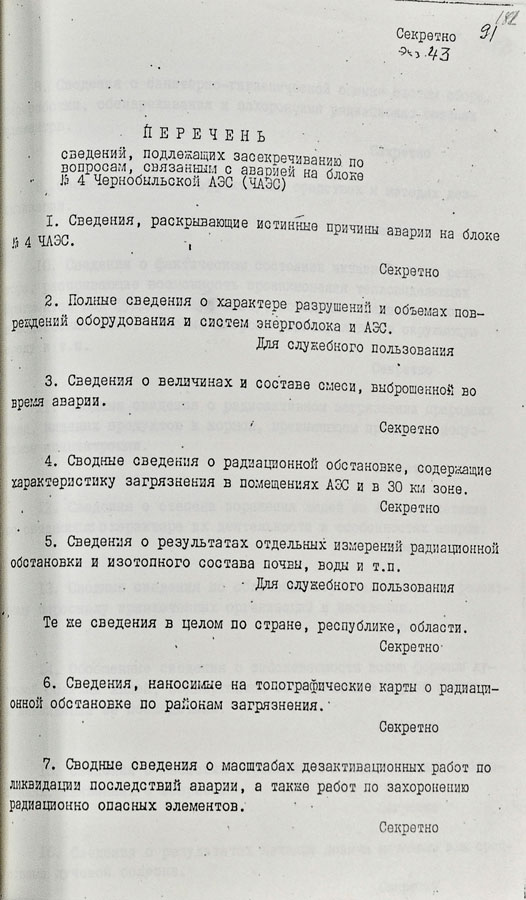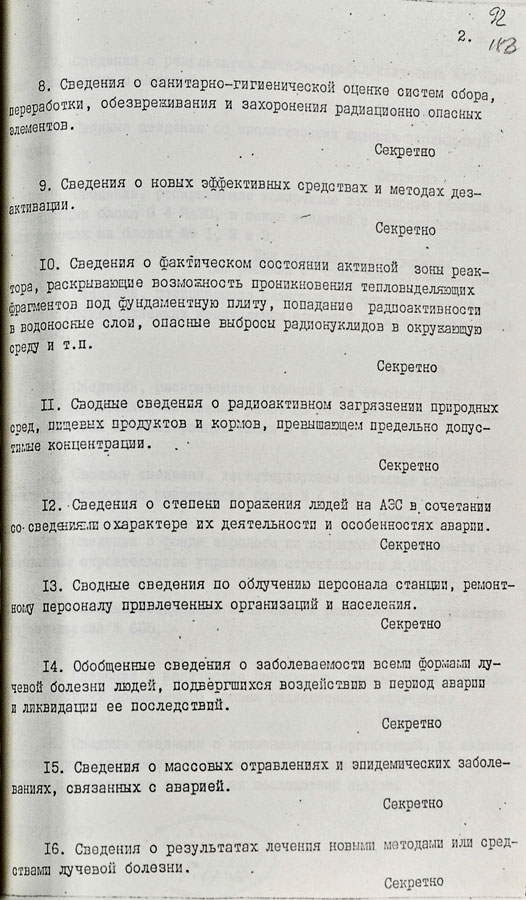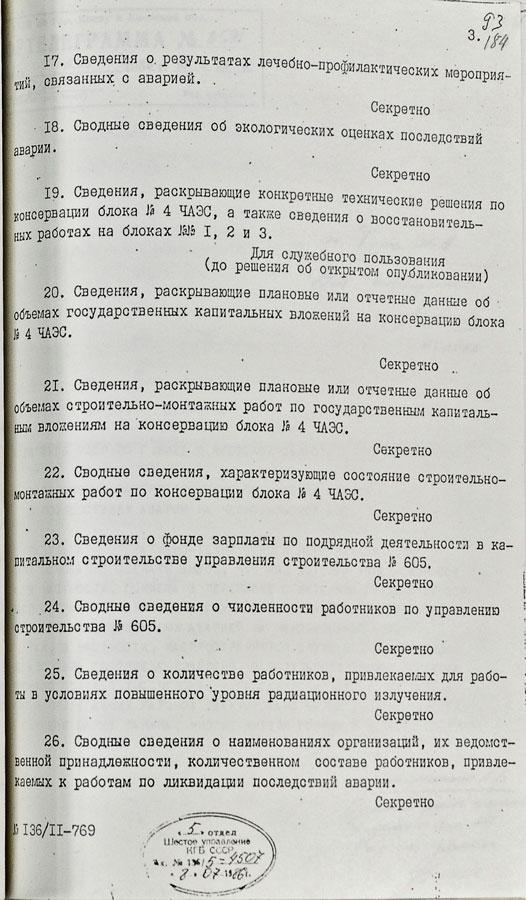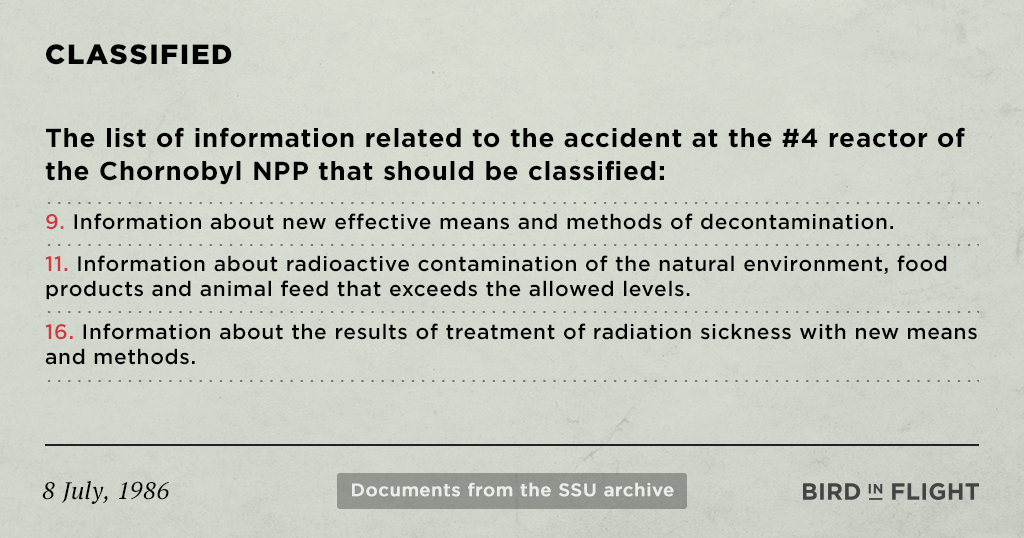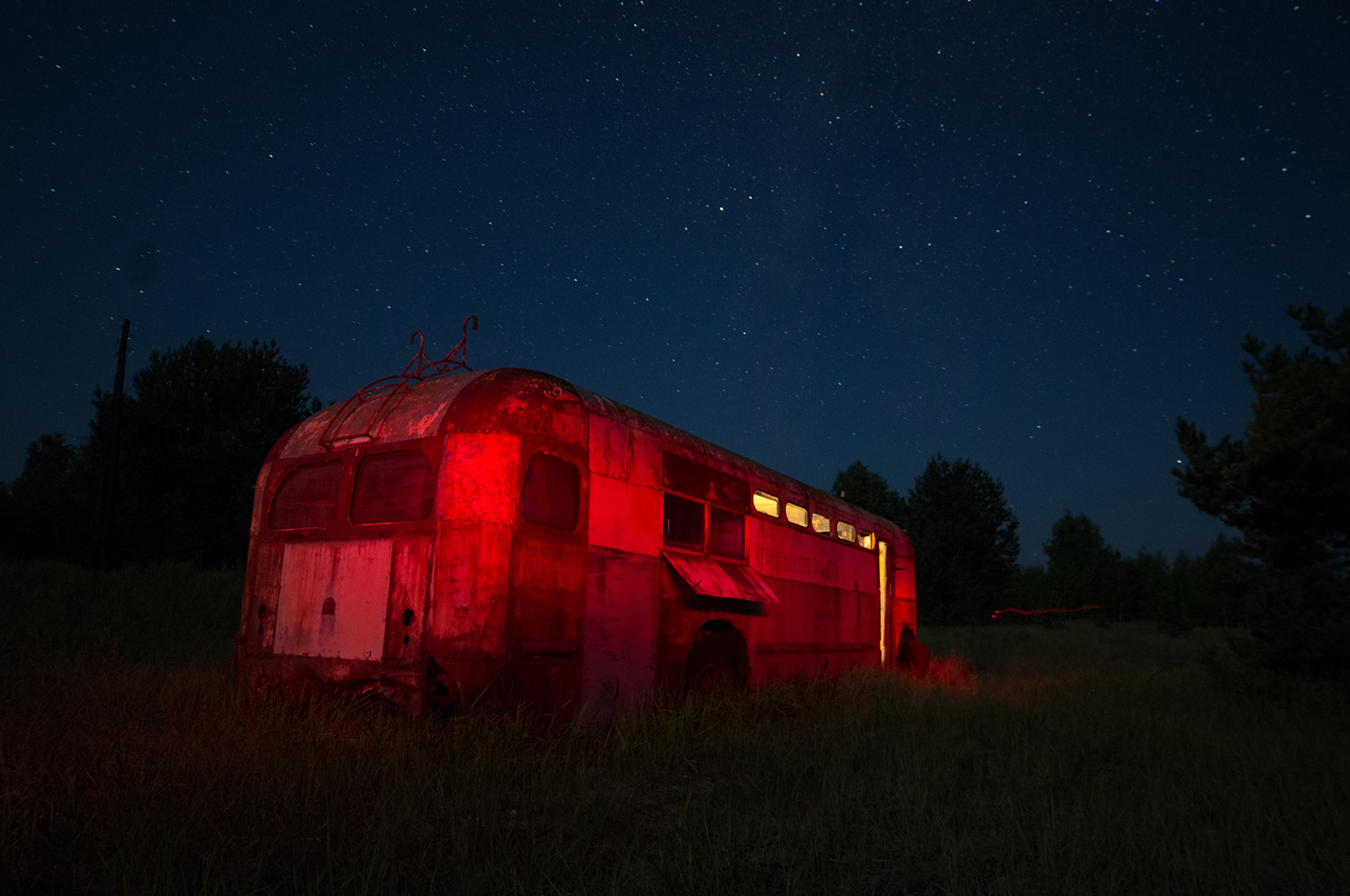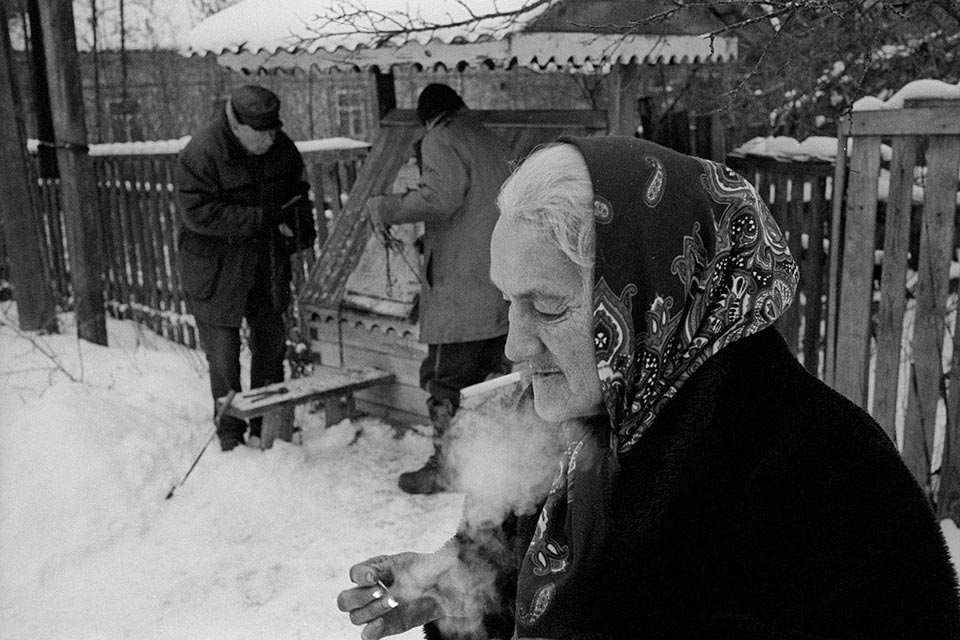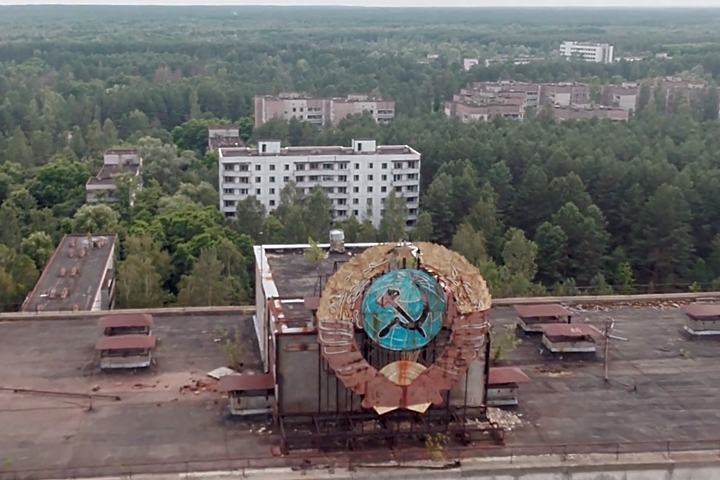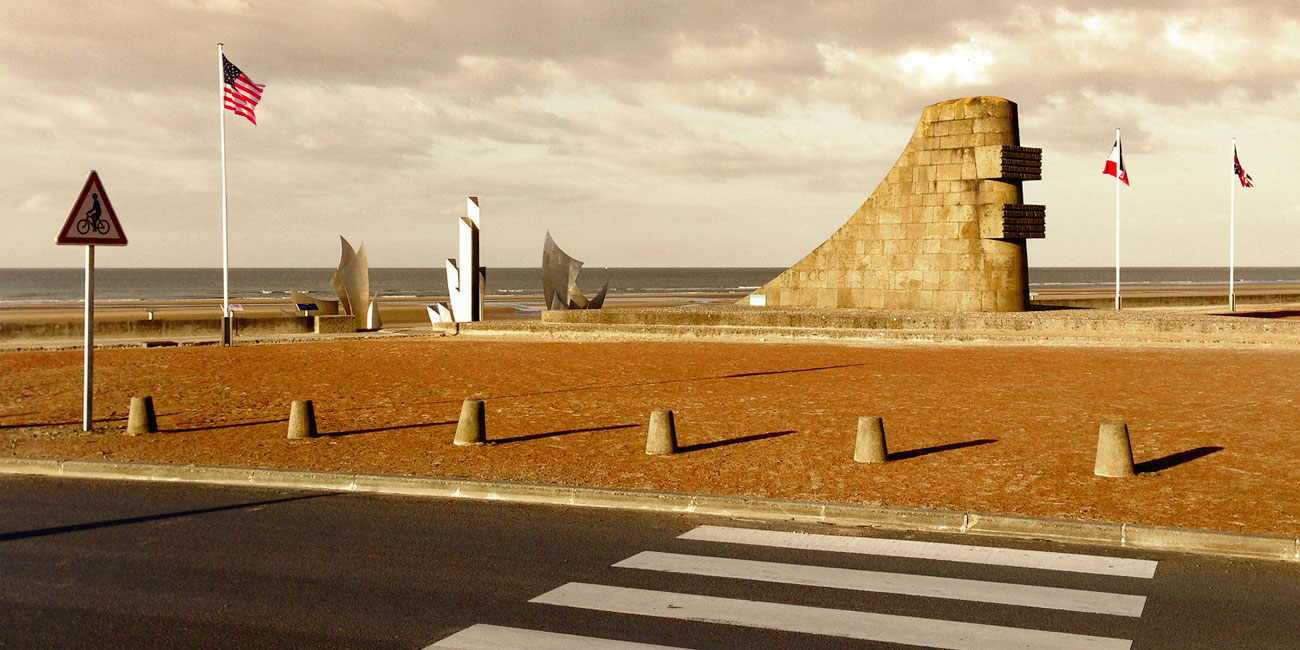Declassified: KGB Documents about Chornobyl Nuclear Accident
Last year, the Ukrainian Parliament adopted the law “On Access to Archives of Repressive Agencies of Totalitarian Communist Regime of 1917-1991”, which opens to the public the documents of the Cheka, NKVD, and KGB that are currently stored in Ukraine, even including classified documents. The Security Service of Ukraine’s central and regional archives store more than 900,000 volumes from the Soviet period — they are to be handed over to the Ukrainian Institute of National Remembrance.
As the documents are studied, they are gradually digitized, and currently published on the website of the Ukrainian Center for Research on the Liberation Movement. To mark the 30th anniversary of the Chornobyl NPP accident, the Center published 32 KGB of the Ukrainian SSR classified documents about the causes and aftermath of the accident, as well as about the effort to conceal information related to the accident. Bird In Flight cites the most interesting excerpts.
Eight years before the accident, KGB sources among the people who participated in the construction of Chornobyl NPP reported the unsatisfactory quality of construction and installation works, which could lead to the “destruction of the constructed objects and radioactive contamination of the environment.”
Two years before the explosion, Moscow colleagues have informed KGB of the Ukrainian SSR about a widespread opinion among nuclear professionals in the capital that the reactors installed on Chornobyl NPP have structural deficiencies, which “can become a cause for a serious accident”.
The level of radiation from a car that arrived at a village in the Kyiv region from Prypiat the next day after the accident speaks of the levels of background radiation in the vicinity of Chornobyl NPP after the explosion.
Information reported over an encrypted communication channel from the accident site six days after the explosion describes the actual radiation levels, the process of evacuation of local citizens and the first steps to investigate the reasons of the accident.
Two weeks after the accident, the unnamed officer of the KGB of the Ukrainian SSR reports the situation on the evacuation sites, the sentiment of the people, the situation in transportation hubs and key industrial objects in Kyiv, as well as about the measures taken to prevent foreign journalists from doing their work.
It was 1986 and perestroika was looming, which allowed many Ukrainians who voiced their harsh opinions about Chornobyl NPP accident to avoid serious consequences. The following document shows that obtaining information from private conversations was standard practice for the KGB at the time.
Incredible evidence of the methods that KGB employed to prevent foreign journalists and scientists from obtaining information about the real scale of the Chornobyl nuclear accident.
And finally, probably the most disgusting document of all published. It shows that not only the causes and the aftermath of the Chornobyl NPP accident were classified, but also the methods of countering the related diseases, which could have been useful for other countries, and information about contamination of food products, which was important for local citizens.
New and best
